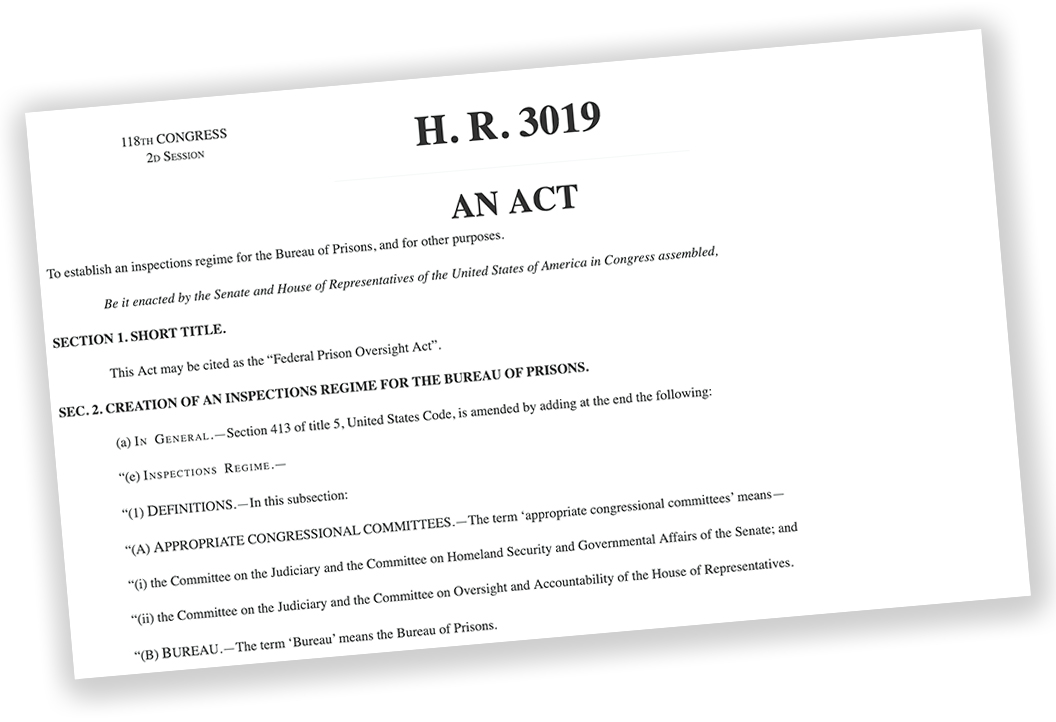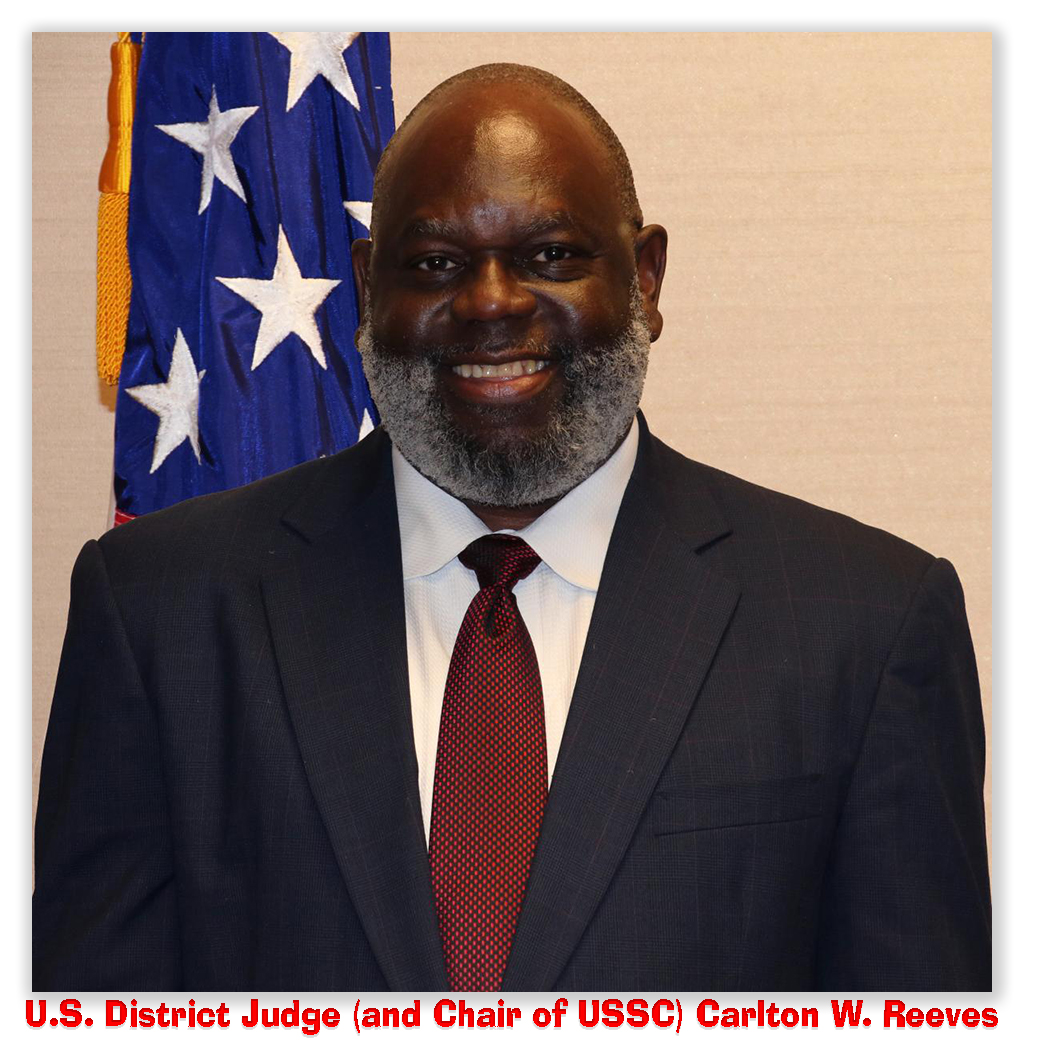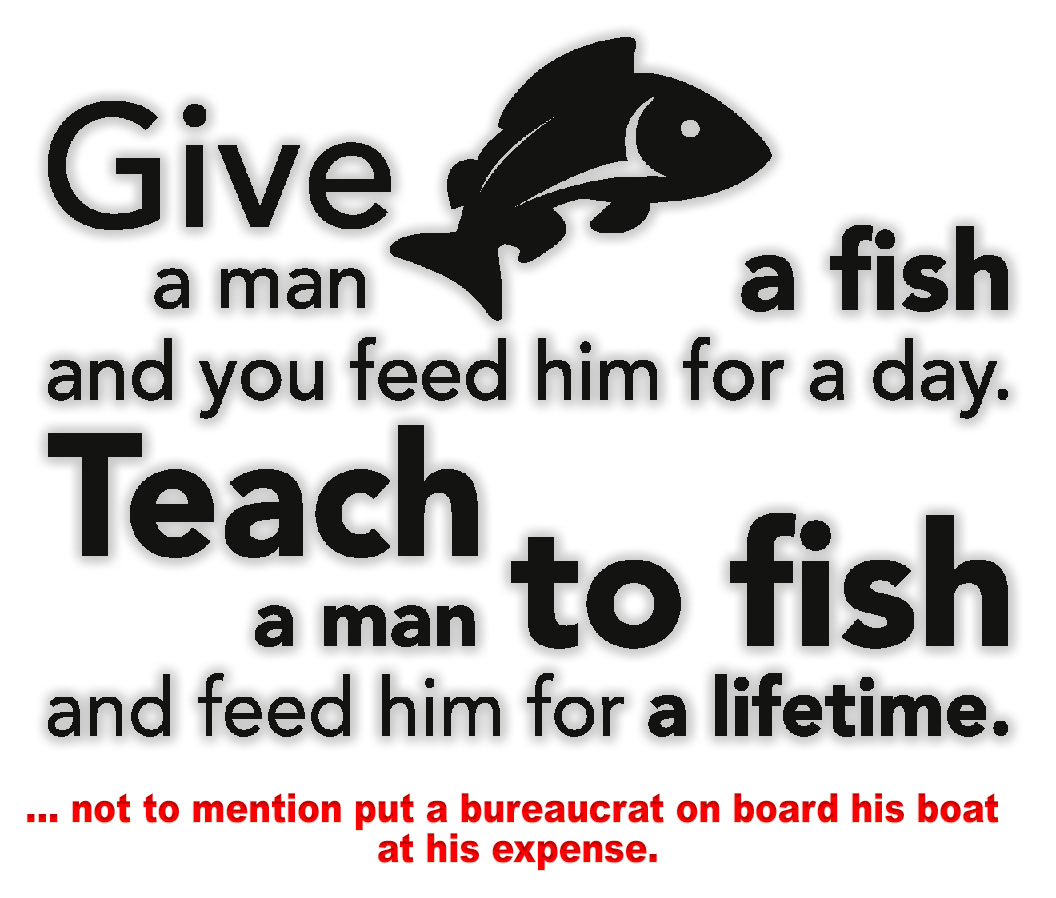We post news and comment on federal criminal justice issues, focused primarily on trial and post-conviction matters, legislative initiatives, and sentencing issues.

MORE MYTHBUSTERS
 A few weeks ago, I wrote about some of the current popular myths being shared on what federal prisoners wryly refer to as “inmate.com” (which has nothing to do with that actual and rather strange website inmate.com).
A few weeks ago, I wrote about some of the current popular myths being shared on what federal prisoners wryly refer to as “inmate.com” (which has nothing to do with that actual and rather strange website inmate.com).
Today, I collect a few more myths that deserve busting:
![]()
(1) Why is the BOP denying high and medium-recidivism inmates the use of their FSA credits?
Under 18 USC § 3624(g)(1), in order to use FSA credits, a prisoner must have a “minimum” or “low” recidivism risk or have “shown through the periodic risk reassessments a demonstrated recidivism risk reduction.” It is possible for a medium or high recidivism inmate to earn the right to spend FSA credits, but the statute [18 USC 3624(g)(1)(D)(ii)] is very specific about how difficult earning such a right would be.
 The important point is that any changes to the FSA credit program —which lets prisoners earn credits to shorten sentences and permit more halfway house/home confinement—that would permit people with high and medium recidivism scores to use their credits would require both the House and the Senate to pass an amended First Step Act law, and the President would have to sign it. It simply is not going to happen this year.
The important point is that any changes to the FSA credit program —which lets prisoners earn credits to shorten sentences and permit more halfway house/home confinement—that would permit people with high and medium recidivism scores to use their credits would require both the House and the Senate to pass an amended First Step Act law, and the President would have to sign it. It simply is not going to happen this year.
And while we’re on it, why won’t those hidebound Federal Bureau of Prisons managers let prisoners with 18 USC § 924(c) gun charges have FSA credits? Simply enough, it’s because Congress deliberately excluded § 924(c) convictions from eligibility. The BOP’s got no power to change that.
One reader asked, “What about that change in the law that lets all § 924(c) convictions be changed into § 922(g) convictions?”
There is no such change either proposed or enacted, and no one (outside of my reader) has ever suggested such a thing. The public dislike of the concept of people using guns during drug or violent crimes would never permit such a change.
![]()
(2) Does H.R. 3019 expand FSA credit eligibility?
 Another reader asked whether more people would get FSA credits because of the passage of H.R. 3019. That bill is the Federal Prison Oversight Act, signed by the president last month. The FPOA is legislation that holds great promise for increasing BOP accountability, but it has nothing to do with FSA credits.
Another reader asked whether more people would get FSA credits because of the passage of H.R. 3019. That bill is the Federal Prison Oversight Act, signed by the president last month. The FPOA is legislation that holds great promise for increasing BOP accountability, but it has nothing to do with FSA credits.
Congress seems content with the current situation: 63 different categories of offenses (comprising about half of all federal inmates) are ineligible for FSA credits.
![]()
(3) How do I get home confinement at two-thirds of my sentence?
I still get complaints that the BOP is denying people who are 60 years old home confinement at their two-thirds date.
The two-thirds home confinement for 60+ people was the Elderly Offender Home Detention Program, authorized by the First Step Act. It was a pilot program and was authorized to run until September 30, 2023.
Congress set the expiration date in the First Step Act. The BOP has no right to waive or extend the expiration date. It’s up to Congress, and Congress hasn’t done a thing about it.
![]()
(4) When does the new methamphetamine law go into effect?
There is no new meth law.
 About 18 months ago, a single district court in Mississippi ruled that the Guidelines enhancement for methamphetamine purity should not be applied because these days, just about all meth is high purity. The judge in question, however, was Carleton Reeves, who happens to be chairman of the Sentencing Commission, making the holding kind of a big deal.
About 18 months ago, a single district court in Mississippi ruled that the Guidelines enhancement for methamphetamine purity should not be applied because these days, just about all meth is high purity. The judge in question, however, was Carleton Reeves, who happens to be chairman of the Sentencing Commission, making the holding kind of a big deal.
The Guidelines enhancement is based on 21 USC § 841(b)(1)(A)(viii), which sets differing levels for pure meth and a “mixture… containing a detectable amount” of meth. Last June, the Commission released a study showing that meth purity is no longer a reasonable metric for enhancement.
The Commission may yet take up the enhancement, although it has not yet committed to do so. However, no real change can be effected until Congress changes the law. Congress has given no indication it is interested in doing so.
![]()
(5) Why won’t the BOP give me all of the halfway house I’m entitled to under the Second Chance Act?
 I will be charging a nickel for each email I receive complaining that the BOP is denying someone all of the halfway house the prisoner is entitled to under the Second Chance Act. I will be able to retire as a millionaire sometime next week. On some nice Caribbean island that I bought out of petty cash.
I will be charging a nickel for each email I receive complaining that the BOP is denying someone all of the halfway house the prisoner is entitled to under the Second Chance Act. I will be able to retire as a millionaire sometime next week. On some nice Caribbean island that I bought out of petty cash.
The SCA guarantees you from zero to 12 months halfway house. That’s right. The BOP is not legally obligated to give you even one day of halfway house. Instead, 18 USC § 3624(c)(1) – which is where the SCA halfway house provision is found in the statute – requires the BOP only “to the extent practicable, ensure that a prisoner serving a term of imprisonment spends a portion of the final months of that term (not to exceed 12 months), under conditions that will afford that prisoner a reasonable opportunity to adjust to and prepare for the reentry of that prisoner into the community. Such conditions may include a community correctional facility.”
Notice the words “may include a community correctional facility.” Those words suggest that the conditions also may not include a community correctional facility. The “conditions” may be nothing more than prerelease classes. Nothing in § 3624(c)(1) requires that you get any halfway house.
If you have FSA credits that can be used for halfway house or home confinement, your right to such placement may be fixed by 18 USC § 3624(g)(2)(A) and (B), and § 3632(d)(4)(C). At least that’s what Woodley v. Warden held. Booker v. Bayless, a Northern District of West Virginia case decided two weeks ago, held that the BOP’s refusal to let an inmate spend FSA credits was part of a “broad statutory mandate not reviewable by a district court.”
![]()
 (6) Doesn’t Loper Bright mean that the BOP has to let people with § 924(c) charges use their FSA credits?
(6) Doesn’t Loper Bright mean that the BOP has to let people with § 924(c) charges use their FSA credits?
In June, SCOTUS ruled in Loper Bright Enterprises v. Raimondo that the 40-year-old Chevron deference doctrine would be no more. The Chevron doctrine holds that where a statute that governs a federal agency is ambiguous, a court must defer to any reasonable agency interpretation of the statute.
The Loper Bright is a fishing boat, the owners of which sued the Dept of Commerce for interpreting a statute to require the company to pay the salary of a DOC employee stationed on the boat to ensure the fishermen were taking an illegal catch. Loper Bright argued the DOC’s interpretation of the statute to permit DOC to charge them for monitoring exceeded agency authority.
Lower courts applied the Chevron doctrine, ruling that DOC’s interpretation of the ambiguous might not be right but was reasonable. SCOTUS, however, held that the Administrative Procedure Act (5 USC § 551 et seq) directs courts to “decide legal questions by applying their own judgment” and, therefore, “makes clear that agency interpretations of statutes — like agency interpretations of the Constitution — are not entitled to deference. Under the APA, it remains the responsibility of the court to decide whether the law means what the agency says.”
Loper Bright might be used against BOP interpretation of some of the statutes governing it. However, the current rumor that Loper Bright will force the BOP to give FSA credits to people with 18 USC § 924(c) convictions is utter nonsense. Convictions under § 924(c) are prohibited from getting credits by the First Step Act. That was Congress’s doing back in December 2018. Only an amendment to First Step passed by Congress and signed by the president, will fix that.
![]()
That’s all the cherished fantasies that just aren’t so for now. But new ones stack up in my inbox almost daily, so I know I will be writing one of these columns again soon.
– Thomas L. Root

